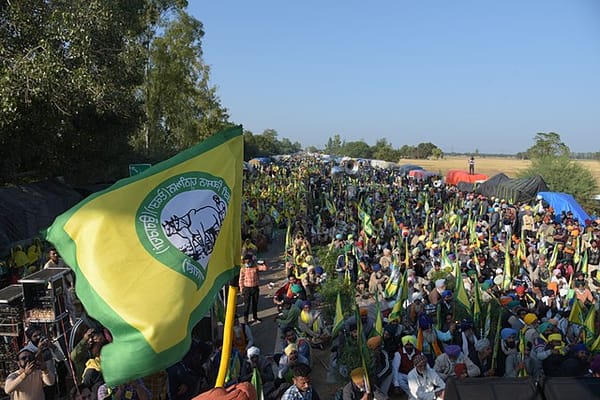Qatar World Cup 2022: Sun, Sea, and Human Rights Abuse
A sad realization that Qatar’s first-class stadiums for the World Cup are built on a foundation of human rights abuse, corruption, and the graves of 6,500 immigrant workers. Featuring a persuasive piece by Ahmad Danesh that will open your eyes to what is happening.

The FIFA World Cup is the most well-known and viewed football tournament in the world, at times surpassing the Olympics. However, the announcement that Qatar will be hosting the World Cup in 2022 has been a source of controversy for the last 11 years – starting from discussion about corruption and money laundering, to the logistics of playing in a country with 40 degree heat, to the rights of fans in the LGBTQ+ community. It’s reappeared in the public eye now with the most recent news of Norwegian clubs pressuring Norway to boycott the World Cup. Why? Because of a report stating that 6,500 workers have died in Qatar over the last 11 years due to this event. The workers are treated as slaves – being denied food and water, receiving late or no payment, unable to leave the country as their passports were confiscated, and then being threatened when they attempt to broach the subject. There is a lot that can be said on this issue, and I understand that people do hold different views on this, but all I ask for is that you do think about this topic and look into it.
You don’t get paid.
You cannot leave.
Eventually, you die.
Your loved ones mourn.
One of Felix’s writers, Ahmad Danesh, wrote an evocative piece, which I think shows an important perspective into this situation:
“I want to tell you a story. I’ll keep it brief but I’ll make you the subject.
Imagine you’re a construction worker trying to feed your family, and an agency offers you a job in Qatar. You accept, hoping it would give your family a lifeline for the future. You wave goodbye to them, waiting to see them again one day when the work is done.
You have your passport taken away.
You can’t get access to water in the desert heat, as you work day through night to build the centrepiece stadium.
You don’t get paid.
You cannot leave.
Eventually, you die.
Your loved ones mourn.
That, there, is Qatar World Cup 2022.
6,500 construction workers have died in the build-up to the tournament, according to the Guardian. To put that in context, assuming the same number of goals are scored in 2022 as there was in 2018, that’s 36 lives lost for every goal scored at a World Cup.
Meanwhile, Bayern Munich release a promotional video featuring Qatar Airways which encourages football fans to look forward to the future. Would Bayern Munich also stand for the 6,500 lives lost in Qatar itself?
Football is now a money game. Lives are irrelevant as long as the spectacle satisfies the fans. We have more importantly lost our morals as human beings - we have sold our judgment between right and wrong for the immediate satisfaction we can obtain from tangible desires. With money comes a loss of perception, and therefore a lack of true judgment.
Ask yourself, would Marcus Rashford boycott the next World Cup? Would Bayern Munich players boycott the World Cup in the interests of all those workers who lost their lives at the hands of their slave masters?
We must make a change. If we do not watch the World Cup on our TVs, then we stand for what is right and show the money-hungry corporations and the leaders of Qatar that a human life matters more than the game they built a spectacle for.
I, for one, will not be watching the World Cup in 2022. The question is... what will you do? Stand for those who gave their life or fatten the wallets of the very people who led them to their deaths?”

we want the World Cup to be something that the next generation can be proud of, and see it as a tool for bringing the world, in all its colours, sexuality and religions, together as one
The World Cup is a great event, where countries get together in support of their favourite teams. It’s a place where you can create a community: you meet people from all over the world who will enjoy and celebrate victories with you and support you through the defeats. It’s such a big part of people’s culture and childhood, and the love for football is undeniable across the world. And we want the World Cup to stay like that! We don’t want it to become a place of mourning, hatred, and the violation of human rights.
This will be the first World Cup held in the Arab world and in a predominantly Muslim country. This could have been an opportunity for the rest of the world to see the wonders of the region, the people who inhabit it, and their cultures, and help reduce the stigmatisation of them. However, this is now unlikely to be the case due to all that has been mentioned above. Countries and their national sporting associations should not turn a blind eye to the atrocities that have occurred, and which may continue to occur, due to the actions of those in charge in Qatar. If there was greater, genuine interest from FIFA to monitor what was happening regarding the human rights violations, they could have prevented this level of human rights abuse.
We want the World Cup to be something that the next generation can be proud of, and see it as a tool for bringing the world, in all its colours, sexuality and religions, together as one.





